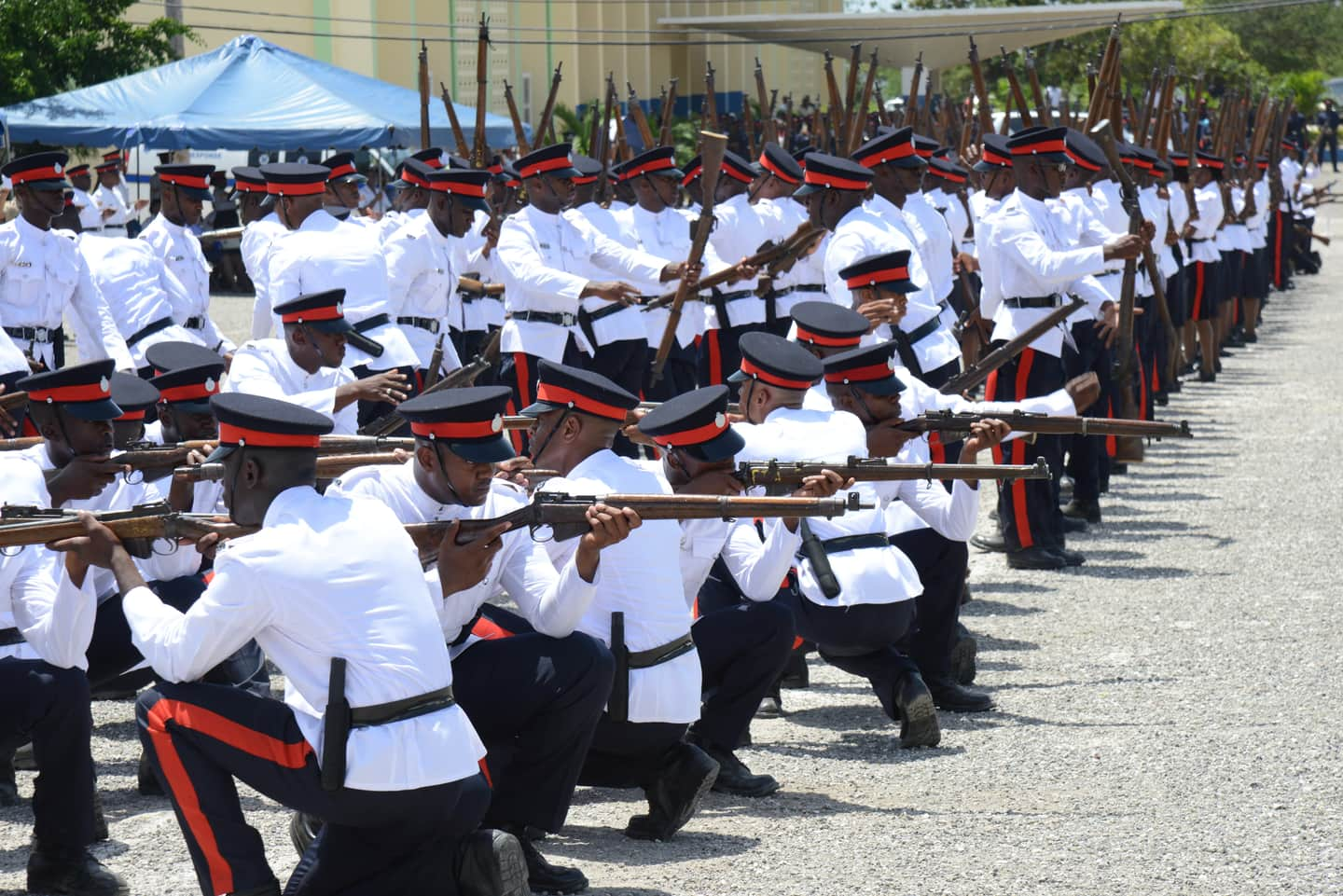Some years ago, before the first zone of special operations (ZOSO) was to be set up, the leaders of the security forces called together their best men and women. The emphasis was on accountable, effective, rights-based policing.
After selection, training was done on human rights. I, along with other persons and officials who work in that field, attended their ‘graduation’ before they launched out. We all praised them for their service and encouraged them to be true to the training.
At the end, the graduates were invited to field questions. The first to stand was a corporal of police, who asked: “Why unnu hugging up gunman?” His question was greeted with much approbatory applause by the police present. The soldiers sat on their hands.
I have often thought of that day and the disappointment that the corporal’s question and his colleagues’ reactions must have been for their leaders and tutors. The trouble is that there are some Jamaicans, including in the corridors of power, who hold common ground with the corporal’s sentiments.
They will disbelieve any report of police misconduct or, when confronted with proof, retort that it was isolated. Frequently, they will ask people who stand up for police accountability: “Why don’t you talk about the criminal gunmen?”
Another approach is to say that human rights and police accountability are admirable concepts but can come after we solve the crime problem. Some will even say that sometimes the police need to ‘deal with’ some of these bad men, a euphemism meaning ‘to murder’.
This straw-man perspective must be challenged. Murder and unprofessional use of force by state agents cannot be a tactic of policing, and the State must organise itself to detect, prevent, and punish such misconduct. To act otherwise would be contrary to the very principles of our civilisation. However, I will not rest my case on these fine principles. Here are three practical arguments.
First, unlawful and unprofessional conduct by our security forces cannot bring law, order, and justice. America’s Wild West was not tamed by outlaw sheriffs but by the creep of civilisation and formal justice. Don’t let those old movies fool you. Similarly, Jamaica’s ‘name-brand’ police and the dreaded units of the past brought no sustained reduction in crime; instead, we have seen steady increases.
We must admire the security forces for their service and courage, but there is no place for blind faith that they will act properly. Law, order, and justice cannot be a matter of blind faith. In my own lifetime, now five decades, Jamaica has unwittingly conducted a social experiment on what happens when our security forces lack scrutiny. The repercussions are a failure in public trust and ineffective crime-fighting.
Second, police misconduct can happen to anyone. The difficulty with speaking about human rights is that many people cannot see beyond what affects them personally. There is an element of selfishness in those who ask us to not scrutinise every police killing and just hope that they get it right most of the times as none would want themselves, or their families, to be the victims of excessive use of force. They would not want to sacrifice themselves or their family to police misconduct supposedly on the altar of law and order.
Permit me a personal recollection. It was a summer day in the early 1980s, and refuse had been piling up for a couple of weeks in our yard waiting in vain on the garbage truck. We could hardly complain as dad was the mayor. My mother ordered her three teenage sons, 17, 16, and me, a wee 15, to take the garbage to the parish council dump near Lakes Pen, St Catherine. We were all sixth-formers, prefects, and sergeants in the cadets.
My big brother took the wheel, and we, the younger two, were the side dustmen. The dump was on a lonely stretch of road. After we had done our job, a police patrol car appeared. We thought nothing of it. We were not breaking the law. In fact, we were being punctiliously lawful. The car stopped, and one of its two occupants alighted. Although almost 40 years have gone by, I vividly recall his badge number, the car number, and, of course, what he did.
His firearm was quickly removed from its holster. My small but hirsute big brother was ordered from the car and threatened with the firearm being pointed at his head as the officer tinkered with its working parts. His colleague participated by laughing merrily. We, the teenage boys, de-escalated the situation by speaking calmly and obsequiously.
When we got home and told our dad, he was appalled, and we reported the details to the superintendent. It would seem that nothing came of it as no statements were taken and we were never asked to give any evidence in court or at a police enquiry.
What would have happened if those three teenagers were not able to calm the trained adult? Would we have been shot? In that event, chances are, the shooter’s colleague would have supported his ‘squaddie’ and guns possibly planted on us. Our deaths could have been followed by our defamation as criminal gunmen. In the absence of evidence to rebut the police version, our good character would have spoken for nothing. In these circumstances, no charges would have ever been laid and the officers would – as they did – continue in service.
The third reason is that lack of scrutiny has produced a police force that is hobbled by corrupt and abusive members, as well as endemic cultures that retard the force’s ability to do its work. That was the verdict of the 2008 Strategic Review by the ministry, which reported a culture of lies and perjury to help a colleague, contract killing, graft, and tampering with evidence. These weeds have taken root in the fertile soil of unaccountability and by the inattention of the leaders in the force and outside.
In the Jamaican tradition of ‘tek kin teet kibba heart bun’, let me tell you an apocryphal story:
A North American police force invited three units from Caribbean police forces for tactical training. At the end, a test exercise was arranged. Each unit was required to capture a squirrel from a stand of trees.
The first unit studied the problem and realised that squirrels were attracted by a particular whistle. They entered their stand. Within minutes, the silence was broken by the blast of a whistle and, within seconds, a single report of a rifle. The team returned and proudly presented the umpires with a single dead squirrel.
The second unit stood outside their stand and unleashed a steady volley of rifle rounds and incendiary grenades. After 10 minutes, the trees were reduced to embers. The unit entered with garbage bags and shovels. Soon, the bags were filled with dead and charred fauna of varying types. This they presented to the umpires, saying: “A squirrel must be in there.”
The third entered quietly and, within a few minutes, returned with a live caged rodent. The umpires peered into the cage and determined that the animal was, in fact, a rabbit. The other units complained: “We were told a squirrel, not a bunny!” The leader of the third responded by asking for a few minutes and then left to the back of the premises with the bunny and his team. On returning, the umpires, stopped them and said: “That is the same rabbit.” The leader took the now anxious-looking rabbit from the cage, and, although his little neck was being throttled, the poor animal clearly stuttered: “I am a squirrel.”
Did any of these units win the exercise? Do any resemble the policing you are used to? Which, if any, would you like to police your community?
When the question was posed by the corporal at the ZOSO graduation, I paused and explained that INDECOM’s work in investigating allegations of abuses “hugs up” no one. I advised that any officer who acts properly need not fear an investigation. His colleagues were silent, seemingly unconvinced.







